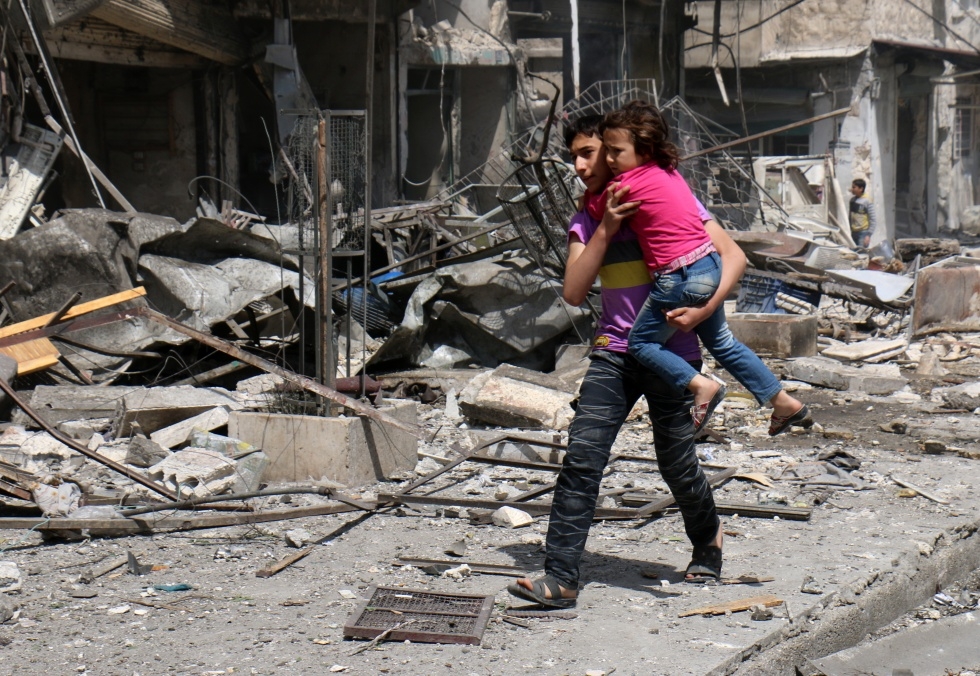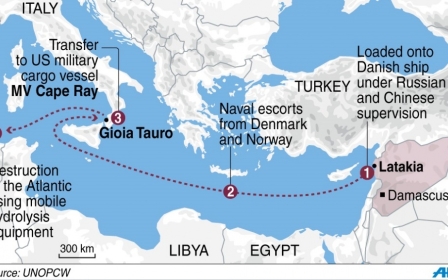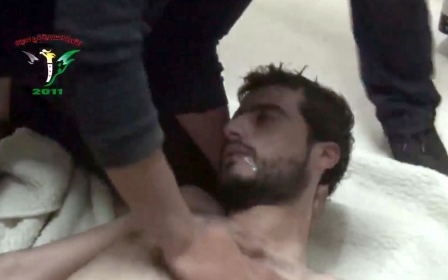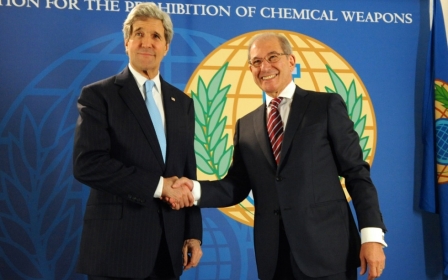HRW: 'Strong evidence' Assad government used chlorine gas

There is evidence which "strongly suggests" Syria's government used chlorine gas on three towns in mid-April in violation of the chemical weapons treaty Damascus joined last year, Human Rights Watch said Tuesday.
The group says it has evidence that the Syrian government helicopters dropped barrel bombs embedded with cylinders of chlorine gas on three towns in northern Syria in mid-April 2014.
The New York-based group cited interviews with witnesses and medical personnel, a video of the attacks and photographs of the remnants of barrel bombs.
Doctors who treated victims said at least 11 people were killed in the attacks and "symptoms consistent with exposure to chlorine" were seen in nearly 500 people, the watchdog reported.
It documented attacks on the towns of Kafr Zita in central Hama on 11 and 18 April, Al-Temana in Idlib on 13 and 18 April and Telmans also in Idlib province on 21 April.
All three are areas under rebel control.
Opposition sources have claimed several government attacks using chlorine gas, and Syrian state television acknowledged one such attack in Kafr Zita but blamed it on the al-Nusra Front.
Opposition activists have said the chlorine is delivered by barrel bombs dropped from helicopters, which only the government possesses.
HRW said the video of the barrel bomb remnants at the site of the attacks showed canisters with the code CL2 - the symbol for chlorine gas.
The group acknowledged it could not "independently confirm" that the chlorine gas cylinders caught on film were packed in barrel embedded in the barrel bombs that were dropped from helicopters."
But it said that it was unlikely the footage was staged or that the chlorine gas was added to the barrel bombs, citing symptoms reported by doctors and witnesses "consistent with exposure to chlorine".
"Syria's apparent use of chlorine gas as a weapon - not to mention targeting of civilians - is a plain violation of international law," said HRW deputy Middle East and North Africa director Nadim Houry.
"This is one more reason for the UN Security Council to refer the situation in Syria to the International Criminal Court."
Syria joined the Chemical Weapons Convention last year as part of a deal to surrender its chemical weapons arsenal after it was accused of a sarin attack in the suburbs of Damascus.
Possessing chlorine is not a violation of the convention, but using the gas as a weapon is. The Organisation for the Prohibition of Chemical Weapons watchdog announced on 29 April it will send a team to Syria to investigate the chlorine attack claims.
Syria's government accepted the mission and stated that it would ensure the security of the team in controlled areas.
About 8 percent of Syria's chemical weapons stockpile still remain in the country.
A final deadline of 30 June this year has been set for the complete destruction of the weapons after the regime voiced concerns over security and a lack of equipment.
The effort to destroy the weapons followed a chemical attack that killed hundreds of people in suburbs of Damascus on 21 August, 2013.
New MEE newsletter: Jerusalem Dispatch
Sign up to get the latest insights and analysis on Israel-Palestine, alongside Turkey Unpacked and other MEE newsletters
Middle East Eye delivers independent and unrivalled coverage and analysis of the Middle East, North Africa and beyond. To learn more about republishing this content and the associated fees, please fill out this form. More about MEE can be found here.




